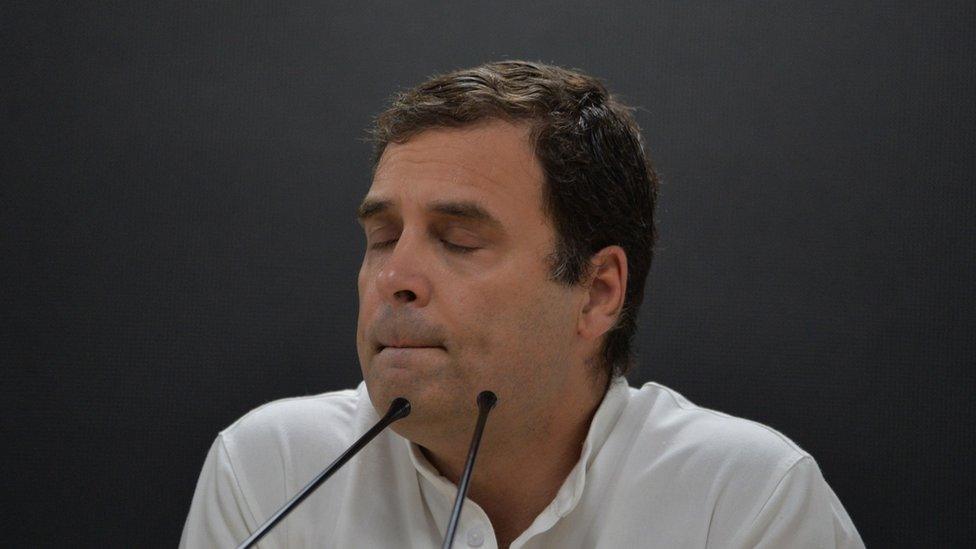Mayawati pulls the plug: The maths behind India's big political breakup
- Published
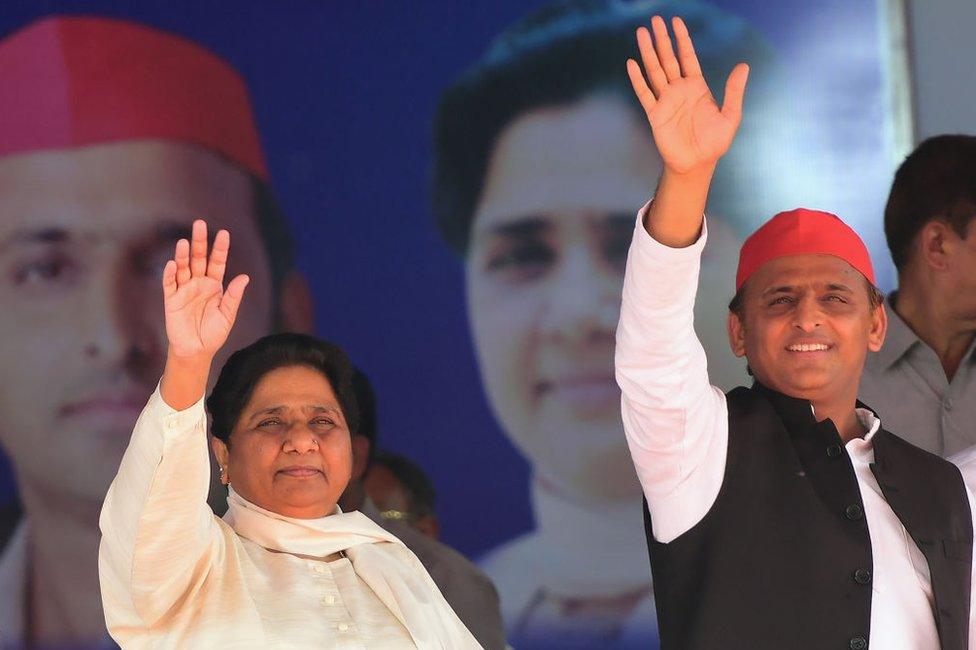
Indian politician Mayawati has ended her party's much-talked about alliance with a rival party after their rout in the recent general election.
Her Bahujan Samaj Party (BSP) tied up with the Samajwadi Party (SP) to contest the 80 seats in the bellwether state of Uttar Pradesh in the north.
They won just 15, while the incumbent Bharatiya Janata Party (BJP) won 62.
Ms Mayawati said BSP will fight upcoming by-elections alone, but did not rule out an alliance in the future.
"It is not a permanent break," she told reporters on Tuesday, adding that she would reconsider the alliance if the SP improved its performance in upcoming by-elections.
A third regional party Rashtriya Lok Dal (RLD) - which did not win any of the three seats it contested - was also part of the mahagatbandhan or "grand alliance".
Here are five reasons why Narendra Modi won India's election
Ms Mayawati is a Dalit icon (formerly known as untouchable) and four-time chief minister of Uttar Pradesh. And SP founder Mulayam Singh Yadav is a former defence minister who also served as UP chief minister thrice. His son, Akshilesh, now leads the party.
Reacting to the news, Akhilesh Yadav said his party would also contest the 11 seats up for grabs in the by-elections alone. He added that he would "reflect deeply" on why the coalition had failed.
Why was the alliance so important?
Stitched together ahead of the general election, the alliance between two regional heavyweights was widely expected to hurt the BJP.
The alliance was expected to consolidate two crucial vote banks to defeat the BJP - the BSP's Dalit vote and the SP's Yadav and Muslim votes. The SP has traditionally been popular among lower castes such as the Yadavs and Muslims.
Ms Mayawati even chose not to contest the election saying she preferred to "concentrate on the alliance".
It was also a sign of how badly they wanted to beat the governing party as Ms Mayawati and the senior Mr Yadav have long been at loggerheads.
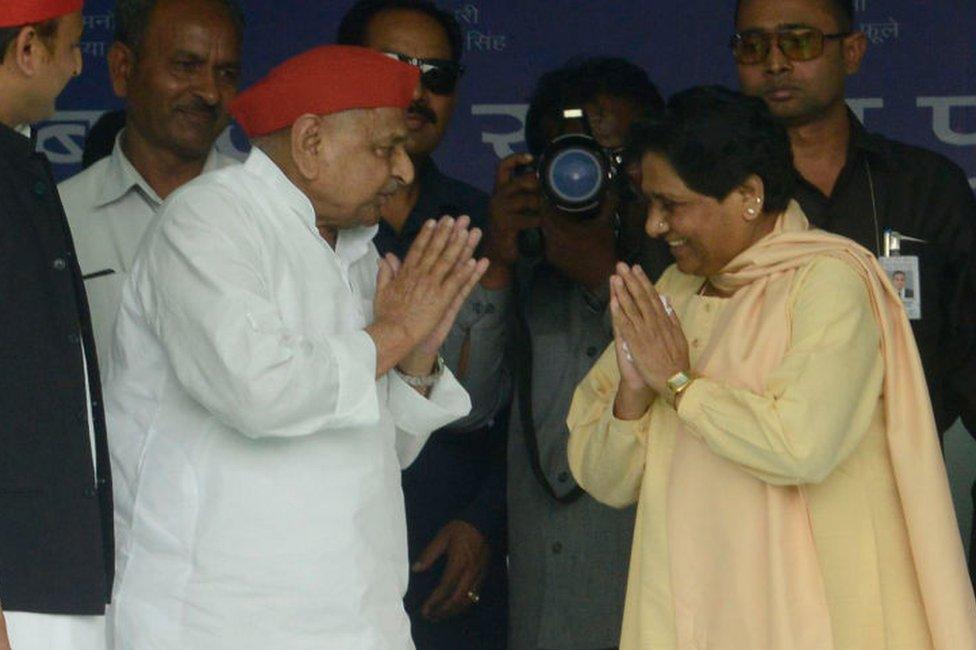
Mulayam Singh Yadav (L) and Mayawati (R) exchange a rare smile
While Ms Mayawati went on to galvanise the Dalit vote, Mr Yadav drew his support from Muslims and Yadavs, a socially and economically weak community that account for 9% of the state's population.
They had allied once before - in 1993, when Mr Yadav became chief minister with the support of the BSP. But the coalition did not last long. In June 1995 - amid rumours that the BSP was going to withdraw support - SP leaders allegedly attacked a guest house where Ms Mayawati was holding a party meeting. She was believed to have locked herself in a room fearing physical assault, but escaped unhurt.
Two days after the so-called "guest house incident", the alliance collapsed and Ms Mayawati became chief minister herself with the support of the BJP. Since then the two leaders have been seen as arch rivals. So, news of their alliance made national headlines and photos of them greeting each other with smiles were splashed across Indian media.
So why did the alliance fail?
Uttar Pradesh is India's most politically crucial state because it sends the highest number of MPs to parliament. The BJP-led coalition had swept the state in 2014, winning 71 seats. And this time it won 62.
The BJP's emphatic victory, according to some analysts, was the result of a formula that had also helped them win the state elections in 2017, external. It honed its campaign to focus on every caste and community other than those that traditionally vote for the SP and BSP.
An analysis by political scientist Gilles Vernier found that "grand alliance" may have in fact hurt the SP and BSP rather than help them. While their vote share dipped compared to 2014, the BJP's had increased by about 7%. And the SP was the poorer performer - it won 13.7% of the the seats it contested, while the BSP won 26.3%.
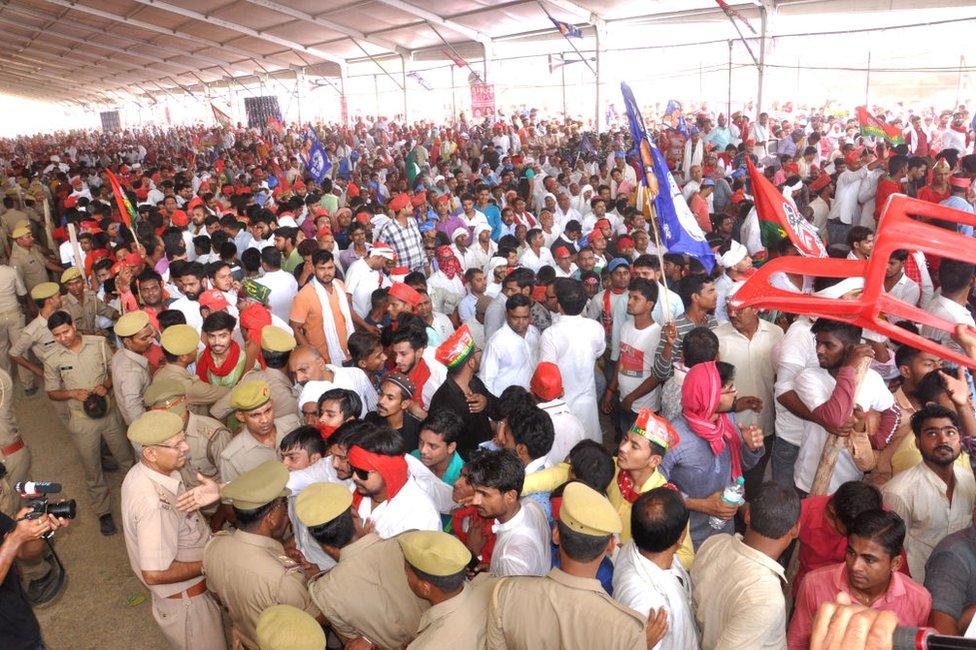
The crowds that turned up to cheer the alliance did not translate into votes
Ms Mayawati referred to this on Tuesday when she announced the break-up of the alliance. She said since the SP had failed to win its own "base vote" - that is, votes from its traditional base of Yadavs - the party had been in no position to help the BSP win more votes.
She also motioned the fact that key members of the SP, including Akhilesh's wife, Dimple Yadav, had failed to win seats.
But she did speak of the couple with some fondness: "Akhilesh Yadav and Dimple Yadav have given me a lot of respect. I forgot our differences and respected them too. Our relationship goes beyond politics."
- Published24 May 2019
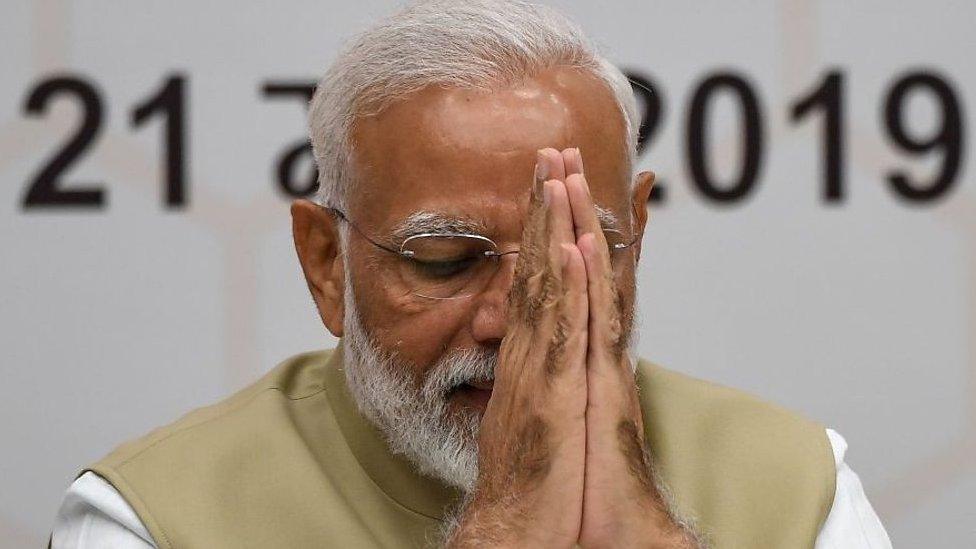
- Published24 May 2019
